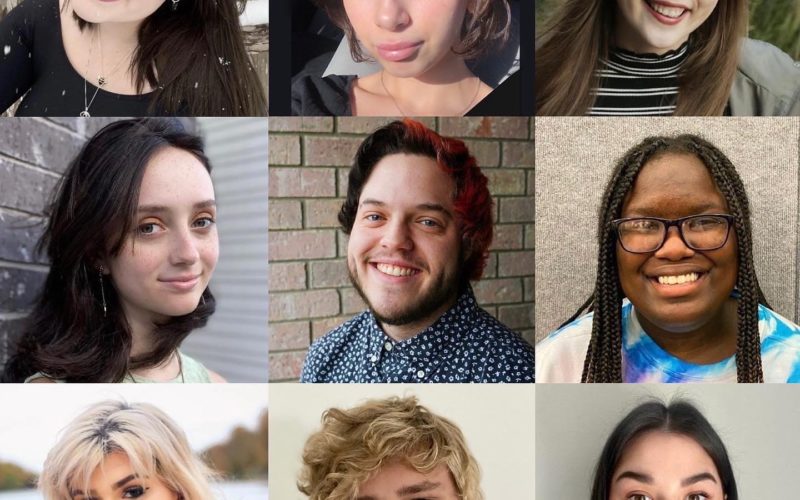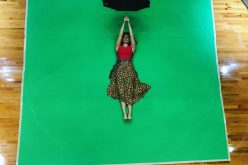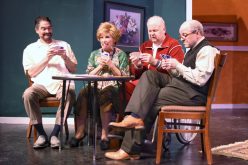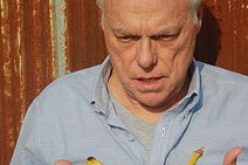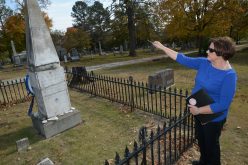BECCA MARTIN-BROWN
bmartin@nwaonline.com
When you first see Dani on the stage, she’s not alone. Wrapped around her legs is Depression, a character as real as the human figure it’s attached to. A friend calls to ask Dani to go out that evening, but Depression says no. Dani tells herself she should be doing the dishes and laundry that have been piling up, maybe make the bed or cook a real meal.
“But that’s not gonna happen.
“I can never make that happen.
“I’m just too…”
“Worthless, lazy, incompetent,” Depression finishes the sentence.
“But I don’t want to be. I mean … I’m not doing any of this on purpose. I used to keep this house clean. I used to dance at the club! I used to love dancing…”
But there’s no point in trying to do anything, Depression says. “It doesn’t matter.”
None of it matters. And that’s where Dani is stuck.
The play is titled “Mental,” and it’s a University of Arkansas student’s look at mental illness through the eyes of those who must live with it every day. There are characters named Anxiety, Bi-Polar, ADHD, PTSD, OCD and Dysmorphia, and all of them are used to bring to life those challenges as they impact The Host, Sky, Jet, the Waiter, Benji, Ash, Tobi, Milo and Otto. In the end, the actors explain that in the United States, one in every five people faces mental health problems — and those problems also affect friends, family and peers.
“Negative stigma around mental health has caused the alienation of people with mental illnesses,” says Actor 4. “Why does compassion we show only extend to the illness we can see,” wonders Actor 1. “Those with mental illness need to be … treated with the same care you would show someone with a physical wound,” agree Actors 2 and 3.
“We have the power to change the lives of countless people and how they are viewed,” concludes Actor 6. “If we could just break the stigma.”
Alexis Perez, a transfer junior currently pursuing a theatre degree at the UA, is the playwright.
“Theatre has been my passion since I performed my first monologue at 15,” she says. “I had taken a theatre course as an elective in high school, and had always dealt with severe anxiety — now properly diagnosed as panic disorder. Before performing, my goal was to just get it over with; however, as I performed I was able to quickly discover this new-found power that I possessed. I felt in control.
“Theatre helped me to take back my power.”
However, as it has so many others, the covid-19 pandemic affected Perez’s mental health. And when she tried to audition for a scholarship at the UA, her panic disorder hurt her performance.
“I felt in that moment resentful for how my mental disorders clogged the way I lived my life,” she remembers. “This series of overwhelming emotions propelled me into an immense panic attack where I began to quickly write how my mental disorders were making me feel. This writing then kickstarted the beginning of my production … And before I knew it, I had a whole story.”
“Working on a production that highlights mental disorders in not only a caring but personal way has made me feel more normal,” says one of the actors, Abby McManis. “I love being a part of something so powerful and impactful.”
“I love having the chance to create a self-production with so many creative individuals. Collaborating with actors is always an amazing opportunity, especially when this story can help bring our community closer together,” adds stage manager Taylor Hobby. “The play is not supposed by the theatre department [at UA]; it is a small production company created by Trey Smith, myself, Alexis Perez and Collin Mills to give opportunities to ourselves and the community to work on shows we are really passionate about.”
Perez admits the play may be challenging for audiences living with mental illness, but the reward, she hopes, is “de-stigmatizing how individuals living with mental disorders are viewed.”
__
FAQ
‘Mental’
WHEN — 7 p.m. Jan. 28-29 & Feb. 4-6
WHERE — Adohi Hall, 187 S. Stadium Drive on the UA campus in Fayetteville
COST — Free, but there will be a food drive at the door
INFO — Email zthobby@uark.edu
FYI — Proof of covid vaccination or a negative covid test will be required at the door.

